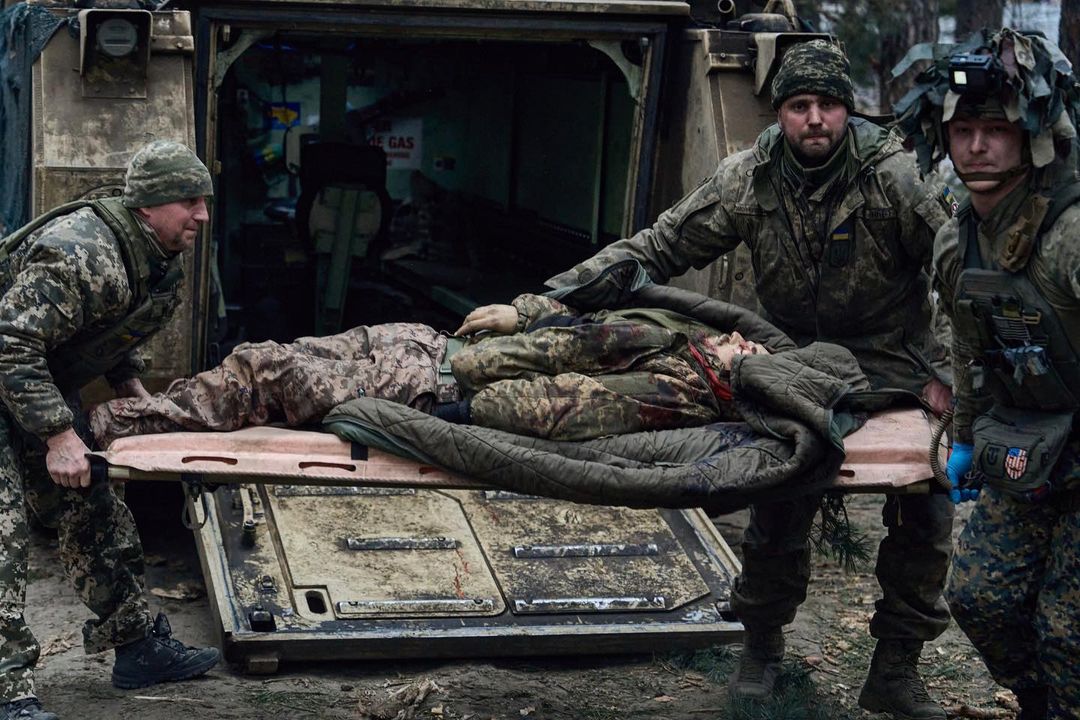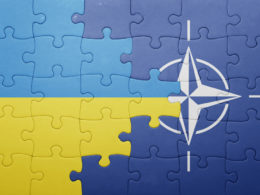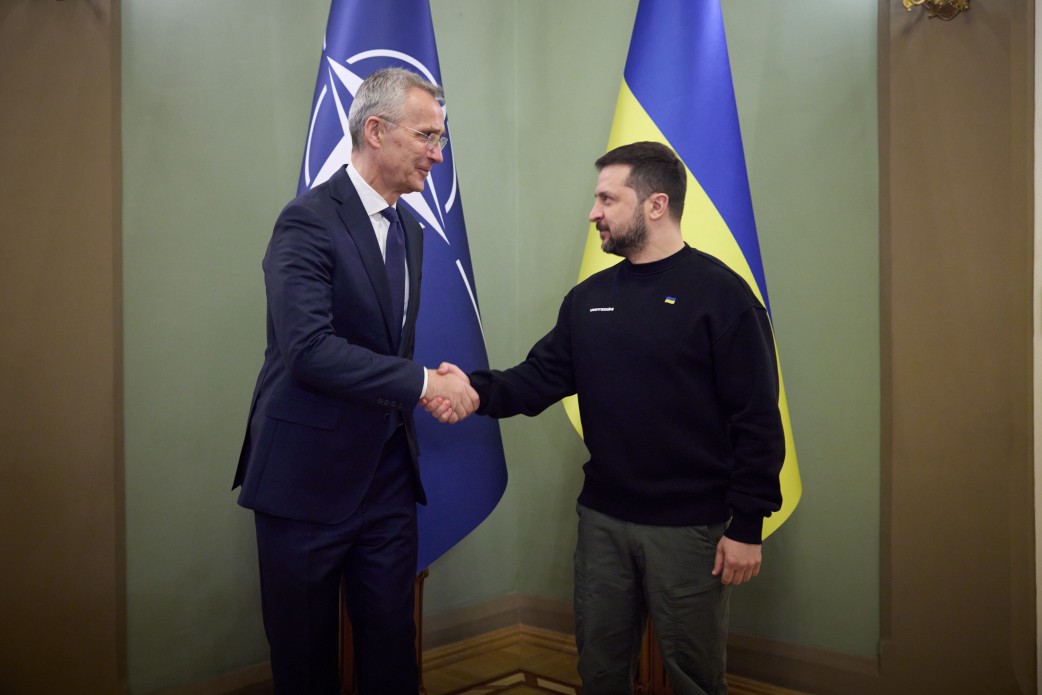In the 12 months following the 24 February invasion, the Armed Forces of Ukraine [ZSU] have produced amazing combat results. They have delivered a performance beyond anything anyone could imagine. They have surprised the Russian government and the international community. Ukraine will win this war. But so far, this has been at great cost in blood for the country. And as Chief of Defence, Valeriy Zaluzhnyi told The Economist: the military is bleeding.
This loss should cause the government, Parliament, and military leadership to rethink hard some of the current military policies and laws. It is simply not good enough to order people to die. Ukrainians will do their best in battle because they are fighting for a free Ukraine, but employing Soviet leadership attitudes and methods are no longer appropriate.
There should be a clear government aim to reduce dramatically the number of people killed in the front line by trying to do things better. This war could easily continue for another two to four years.
It is both dangerous and wrong to continue to trade Ukrainian motivation, bravery, and blood for victory when there are things that could and need to be done differently.
As the first anniversary of this stage of the war approaches, the leadership should study hard the whole realm of defense and assess where new directions and policies can deliver better results. Many examples of best practice policies in NATO countries can be copied. Results may not come immediately, but the study process will produce new ideas and thinking. I suggest that even one life saved is worth the effort.
Poor results, when they occur, which they always will, must be faced honestly and not glossed over with self-congratulatory words and speeches from government. Public criticism is growing on social media about many aspects of Ukrainian operations, ranging from tactics, leadership, laws such as 8271 (on strengthening responsibility for desertion, disobedience of military personnel, - Ed.), bureaucracy, training, and procurement, to the human rights of the families of the deceased and missing. Plus, other areas need to be addressed.
Despite the maxim, “We trust in the ZSU,” this organization cannot be perfect, having grown and changed so dramatically quickly. If it is possible to improve, there is no reason to continue with policies and practices that add extra risk to troops, damage morale, and may even cause long-term, adverse political consequences.
UK and France will train Ukrainian marines to “help Ukraine win this war”
Possibly, the biggest problem for the ZSU leadership is developing a new army culture; a culture in which every life matters. Every day, the army fills up with more people with no previous military background. They were civilians just weeks and months ago. Many are mature with strong business and professional backgrounds. They have limited tolerance of the top-down way of working that was common to the pre-24 February army.
The “I am the chief, you are a fool” attitude of some commanders today, does not sit well with them. It is also not what society wants or expects. This expectation of change is especially so for those who have held business leadership positions or have higher education. Of course, these people must adapt their culture and habits to the complex ways of the army. However, the senior defense leadership must also understand that many of those they command will not act like an unthinking army of followers.
Instead, like the Finns in the Winter War, they wish to be an “intelligent” force, allowed to use their brains, skills, self-motivation, and initiative and to be led intelligently, not blindly ordered. They know when they see corruption, laziness, and stupidity. This cultural divide is proving problematic in many areas of the army, and the Territorial Defense Forces (TrO) as more casualties occur, and people judge that many commanders simply are not good enough.
A further challenge from this is the growing difference in leadership abilities within the system. The best are getting better daily and more western in their approach, while some commanders remain Soviet to the core. The worst commanders, who lack character, training, and skills, are increasingly turning to bureaucracy and rules to avoid responsibility and to cover up their obvious gap in leadership abilities.
Geographical command boundaries
Fighting along geographical lines, with clear operational boundaries and commanders, is one of the least understood practices of NATO forces. In short, every unit, from even the most basic infantry section and upwards, must have clear geographical boundaries.
There must never be any doubt about any fighting organization's left and right, back or front boundary. These must either be marked on a map or given verbally, using distinct, visible boundaries such as roads or rivers. Every single piece of ground on the front line and behind must be owned by someone, and they must be clear about what their responsibilities for that ground are.
These boundaries denote the unit ownership of that specific area of battle space. The written (battalion and above) or verbal (below battalion) orders given to the commander should be clear for each area and the senior unit commander within each area is then king of that place. Anyone joining that area must be under the command of that commander, by order, unless there are clear, written orders from above saying otherwise and explaining exactly why.
At present, this does not always happen, and people die because of this lack of boundary clarity. Battalions often find other organizations crossing their boundaries without prior communication about who, why, or when. I spoke to one battalion staff member over Christmas who said their battalion had fired on our special forces twice and nearly fired on another unit. These units had entered the battalion territory without prior communication or liaison, leading to Ukrainian losses.
Blue on blue is the least of the problems. In Soledar, battalions were added to the defense mix with limited geographical discipline or logic and apparently with no discussion with the commanders of existing brigades.
Without clear boundaries, no commander can be sure of the geographical extent of their orders. As well, no commander can be sure of the liaison requirements with neighboring units or with the artillery. So, commanders cannot be sure of their units’ authority to fire, or to fly drones across boundaries, or to maneuver, advance, or retire. Adding new units to the battle without this clarity increases risk of failure.
Whilst the best commanders realize the importance of this, many are too new and untrained to grasp the full significance of the dangers for battle of unclear boundaries and the importance of unity of command. Senior commanders must take this matter seriously and physically check that boundaries at all levels are clear to all.
They must also ensure there is a single commander in any area (usually the brigade commander) and that other non-army units such as the Main Directorate of Intelligence, (GUR), the Special Operations Forces, (SOF) the Security Service of Ukraine, (SBU) National Guard, Border Guard, Territorial Defense Forces, volunteers, marines, and drone units, respect the rules and act always as one army organization and are not following their own tasks and ambition.
The most recent battles show there is an urgent requirement for new military policies and for new training of commanders about geographic deployment rules, along with command and control arrangements of troops in battle. Responsibilities for ground and commanders’ orders at all levels must be totally clear. Currently, they often are not. This causes unnecessary blood to be spilt.
A second challenge is that there should be no – none at all – independent units on the battlefield below brigade size. If they must be in a particular area, they should be allocated to a brigade and under command of the brigade commander, whoever they are. The brigade commander should be given clear orders of the extent of his authority with that unit. Where needed, after any regrouping, the geographical boundaries and orders of that brigade must be immediately changed to suit the new circumstances. This policy should apply to units of all types, arms and services.
One army concept
One serious problem lies with the Territorial Defense Forces that is simply treated as second class in many respects, especially in the selection of commanders and unit training, even though they form the national operational reserve. TrO brigades are now at the front line, without being properly trained or resourced. This lack of a common concept encourages organizational arrogance, where some parts of the military are considered better, or more important than others, and are both treated and act so.
This attitude risks sending soldiers and volunteers to their death early because the system has not valued them sufficiently to prepare them properly for battle. To cut down Ukrainian losses, a future "one army policy" should be that anyone in uniform must be commanded, trained and equipped to the same basic standard as all others.
A policy and law change is needed to ensure that TrO is not left playing a second-class game, as it is now. It needs full and proper integration with the ZSU – now. No matter how they started, today, they are too vital and valuable for anything less.
Created in three days, Ukraine’s territorial defense ruined Russian plans to capture Kyiv
Another problem concerns intelligence and Special Operations Forces, which have unclear and conflating roles. GUR runs centralized intelligence, but this is separate from the army organization it is there to support. There is no proper army J2 organization, so intelligence is simply often not given to those who need it in a form that can be used. Upwards intelligence from units is equally problematic.
Additionally, Special Operations Forces are supposed to be (and were trained by the US to be) the deep-attack organization working behind the lines to disrupt and destroy. But in the absence of a proper deep-attack doctrine for SOF, the GUR has taken this role. Instead, Special Operations Forces are often used as light infantry, wasting years of expensive US training.
Command and Control – The rule of fives
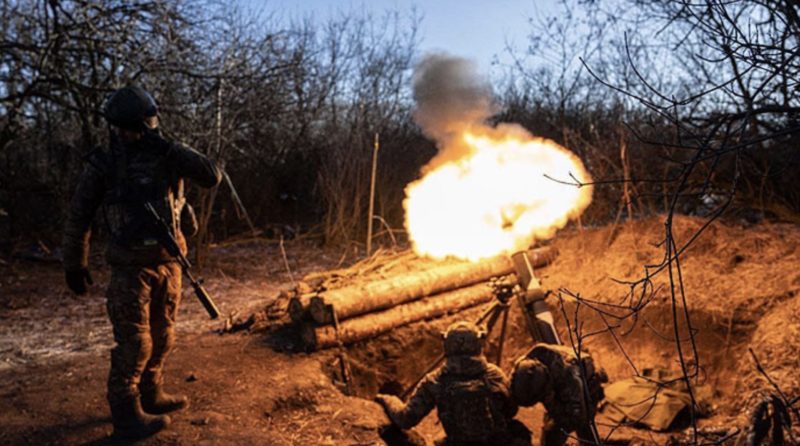
This policy remains, despite the ideas from business of using flatter organizations and the introduction of electronic command systems. There are many reasons.
One of these is the need for commanders to retain close human contact with those they command, not only one level but two levels lower. This contact is vital for morale and “strength of purpose.” This activity takes time. It is also vital for commanders to see people face to face, to judge them for leadership quality and ability, fatigue, and personal strength of purpose. Then, they must recommend the best for further, more difficult tasks, or replace those who are not good enough. The second reason is to reduce information overload before decision-making.
Too many subordinate units mean too much information. The third and arguably most important point is that the commander must “see the ground” before he judges how to fight the battle and what resources he needs to allocate to his subordinates.
Too many units, too many commanders to judge, and too wide a geographic span of command, provides too much information and overwhelms the thinking of senior people. Too many units to command also means poorly considered or rushed orders by stressed commanders.
When there is quality time, the leaders two levels lower get to know what their commander is thinking and wanting, and they learn to think two levels up (and the commander two levels down), thus reducing the chances of misunderstanding overall goals. The junior commanders also learn from discussion, the logic of the commander's original orders, their thinking and the wider goals. The orders they receive are anchored in understanding and allowing the subordinate commanders more chances of tactical innovation.
What this principle means is that in many areas like Bakhmut, where there are many brigades, there should be a single, intermediate divisional level commander between the brigades and the regional headquarters, with sole individual responsibility for success or failure. This principle of a senior commander on the ground commanding three to five brigades should logically be applied for all complex battle areas. The best commanders should be chosen for this.
Commanders and leadership
There appear to be two levels of challenge about leadership and commanders that need policy discussion.
a. At the tactical level, battalion and below, there are both outstanding, and bad commanders, but no clear doctrinal policy guiding them how to operate in the field. NATO policy and historical lessons show that commanders should mostly operate forward with their troops, and that the chief of staff, or XO, should manage the command post and be the link between the commander and troops and the next higher HQ. If anyone doubts the arguments for this logic, they should watch the film Aliens. Its ideas are remarkably close to our current C2 capabilities and show clearly that commanders who lead from command posts can be overloaded with minor detail and are dangerously less capable of giving orders that reflect the reality on the ground.
It is unclear why some officers are chosen to command. The quality of Ukrainian commanders has regularly been praised and criticized equally on social media by those who are being led. The policy should be that those commanders who can get results with limited loss of troops, must be promoted to more serious command roles. They are the most precious metal of the country. Those who are incapable of leading from the front, and who give unprofessional orders that cause heavy casualties and do not reflect the truth on the ground, should be quickly removed to other work. They are not the commanders Ukraine needs to win this war.
b. Key to battle management is the senior command ability to delegate to, listen to, and take note of the concerns of junior commanders who are really doing the fighting. The NATO standard is that the commander who is actually physically involved in the battle (i.e., being shot at), is "king." He may even be a sergeant, or even a private, who has been forced to take command because of casualties. All other commanders senior to him must be in support. The battle commanders have to make the life-or-death decisions. Where humanly possible, senior commanders must provide the intelligence, moral and physical resources for the battle commander to win. Senior commanders should not try to second guess the fight nor try to give orders that do not fit with how the battle commander sees the problem.
Having a battle commander, who is under fire, able to make decisions, even though he's not the most senior officer, is a NATO practice. But today, some commanders are clearly finding it difficult to understand and implement. It goes against all their training and education. This needs direction and support from the highest levels, as this is what the NATO instructors are expecting and teaching.
c. Commanders are responsible for training their troops at all levels and are responsible for the quality of that training. Commanders and staff who do not have the knowledge and ability to conduct training, should not be commanders. Commanders who waste time demanding unnecessary reports should not be commanders. Training saves lives, reports do not.
d. At all levels of command, trust is the key component. Fighting soldiers must trust their leaders and their orders if they are to fight to full effectiveness. This is vital. Trust is the most valued commodity for an army when you want people to fight and die for you. A present, this trust is under strain. This is natural after nine months of war and many deaths. Trust is gained and kept by two-way honesty with the leadership listening to front-line needs and acting upon them. Trust is reinforced by realistic and common-sense orders, by personal contact of leaders with those they command, and by openly supporting those in their command. Trust and openness is also vital within a society that is supporting the ZSU with critical needs.
The recently signed Law 8271 is a serious challenge to the issue of trust. It goes against the natural course of justice. Whilst many think it is vital for control and discipline, they should also recognize that creating a Soviet-type law to demand people do things that they may not be able do without dying, is also a rapid way to raise questions about their trust of Ukrainian society.
The issue of trust is especially important when units have not been resourced properly. It also raises questions about the very ethos and values that the government claims differentiate it from Russia. Trying to convince both society and soldiers that all is well, when it is not, (for example, suggesting “wedding” drones are not needed by units) is equally dangerous. The current policies and leadership activities suggest there is poor communication and fractures between parts of the leadership and the front line that need serious political discussion and careful healing. This cannot be passed off as Russian fake news. It is real.
2023 – Time to make the ground troops invincible
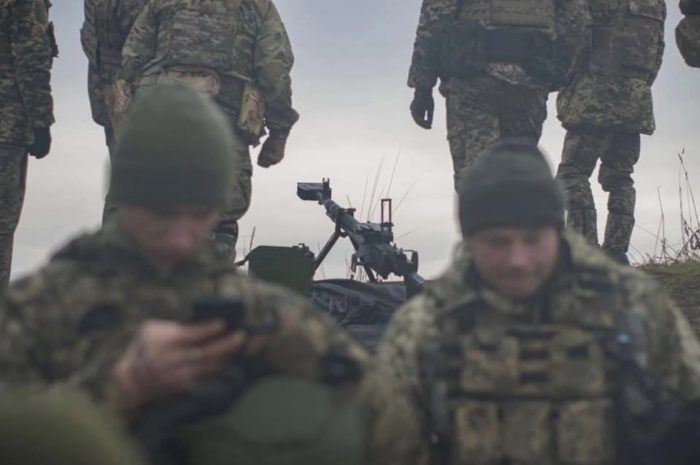
The current battles and change in tactics by Russia, especially the Wagner Group, are worrying because they play directly upon the weaknesses of the Ukrainian infantry. The Russians are using sheer numbers to overcome defenses across the whole front. This tactic was used before by Russia in the Second World War when storming Berlin, when huge numbers of Russians were sacrificed. They will do so again. The combat strength of Ukrainian infantry units must be solved with urgency before another wave of Orc mobilization occurs.
Ukrainian infantry need to be properly equipped to fight this sort of war. Their rifles should be for self-defense only. The troops need to be more strongly equipped with unlimited wedding drones, radios, internet, night sights for every soldier, 60-mm mortars, grenades and grenade launchers for platoons, a full 81/82-mm mortar company for each battalion, unlimited short-range missiles, Advanced First Aid Kits, uniforms and safety equipment for every soldier and of course, far more small- arms ammunition.
All this needs to be managed and organized internally by Ukraine, with urgent industrial production and procurement at the national level. There also needs to be more focus upon these “enablers” in the speeches of leaders and at Ramstein Air Base meetings, so that discussion is not just about big-ticket items like tanks and planes.
Kill bureaucracy
Examples are everywhere. These rules slow down and break natural processes that should be common sense in war. As the wife of former Estonian President Toomas Ilves told me this week, “When you unplug common sense, there is nothing!”
This is a direct and urgent leadership issue. The current situation is causing unnecessary death because of delay among the military. The main documents need rewriting for use in war. A new law needs to be passed immediately, with the key element placing, “critical responsibility to act properly to save life, above the need to follow paper rules."
This should be obligatory for every member of government and the armed forces. Inspection should be focused on improving efficiency and speed and accuracy of response – not following rules. This argument is not new. Much of the work on how the army should function better was done by Gen. Zabrodskyi in defense committee meetings, pre-Covid. Sadly, this work, like that of creating the military police and better military law support, was shelved by the parliamentary managers.
Last week, a typical delay was reported to me concerning drones that were purchased from abroad. They needed a signature for release, from the Ministry of Defense, to the unit that purchased them. This was not done for four weeks. This delay means soldiers die for lack of drones. A policy is needed to speed up activities like this to a turnaround time of 12 hours, maximum. Similar comments about drones have been raised openly in Ukraine media. One recent quote:
“In Ukraine, producing drones for the army is an almost impossible task. It’s the path of suffering and humiliation. Where to start liberating domestic industry from the game of stupid rules and harmful prohibitions …”
Training and education
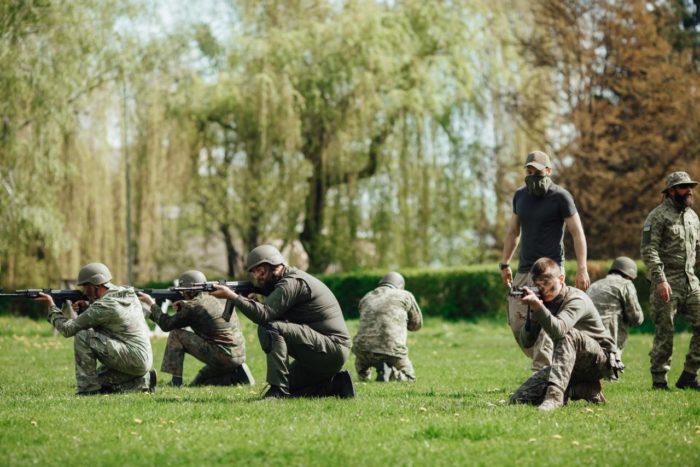
Soldiering quality and saving lives can only be achieved by adequate, highly focused training at all levels, from soldier to general. Training must be continuous. Every opportunity must be used to improve the skills of individuals and teams. It is no myth that the best training is war, but as we can see, that is also highly expensive in blood. The cost to the country of acting the way we have so far, is too high. We are losing future commanders, suffering casualties, losing military morale, equipment, and vital social cohesion. It also is politically divisive because it appears the national leadership does not care about the people they send to war. This dismissive attitude is not healthy. The policy must be that no person ever deploys to battle without proper training.
One fundamental area of training policy that needs urgent action is the need for units to be given collective training. To understand this, compare the difference between a four-piece quartet, to an entire orchestra playing a full evening with a variety of composers. In the larger NATO countries, collective training is regularly done at battalion and brigade level and in major exercises, even at the division level. If new equipment is to be used effectively, then manoeuvre warfare must be practised properly.
This means that mobile headquarters, with all arms and the air force, moving together across large areas of countryside, not just in training areas. Battle plans, physical reconnaissance, orders, mobile fire support, and communications processes need hard practice, from top to bottom, and back again. Without this, the use of the new tanks will be suboptimal and perhaps even wasted. Centralized control will not allow breakthrough properly. Command must be fully delegated, right down to leading tank crews. This must be rehearsed and tested, first at brigade level and not just firing on the range.
The basic training for Ukrainian infantry soldiers today is limited and well below that of any western country. It is much less than that given to soldiers in previous wars. It is vastly less than what's received by Kyiv metro drivers or teachers, for example. The policy of how and what is taught needs to be rethought. The courses need to be longer, more comprehensive and harder. International support should be sought for this.
A soldier's basic training should include learning all infantry weapons, personal battle discipline, tactical team drills for all battle scenarios up to platoon level for urban and rural areas (both on foot and in vehicles), mine awareness, learning and practising the orders process, communications and combat medical. Training to fight at night is vital. The suggestion there is not enough time is mathematical nonsense – simply recruit the soldiers earlier so they have more time for training.
We know these soldiers are needed now. More will be needed in the future. So, change things. Better trained soldiers equals fewer deaths. Many soldiers are now being trained internationally. However, the process and training for basic soldiers should be expanded to ensure that commanders are also trained before they deploy.
A policy of creating mobile training teams to sit close to the front in order to provide units out of battle with the latest lessons learned, also should be considered. Some brigades have created their own teams. But all brigades and battalions need a training officer and a small support team. There is scope here for using those who have been injured in war and cannot fight. One arm or leg missing does not stop teaching.
One foreign legion officer commented to me recently that when he speaks to Ukrainian officers and sergeants, it feels like they come from different armies. This is a colossal problem that hinders successful operations and tactics. Currently, it is chaos with a mix of the Soviet system, the NATO system, and improvisation.
The goal is clear. Ukraine needs a unified school and unified body of doctrine and training for junior officer training. This is so that all platoon, company, and battalion commanders speak the same language and use the same analysis and orders tools.
The Defense College has still not reacted and adapted adequately to the war in its delivery of new education requirements. This war needs totally new thinking. If the war is long, re-education of many officers of all ranks is needed. But much of the same old thinking exists at the college. The policy must be to change both the courses and instructors. Vital for the long-term health of the defense system are new short and intense courses. These courses could include national and international defense, new ways of doing battle, developing IT into battle-winning systems, and integrating society successfully into the military. The old courses, along with many instructors, need to be removed. New officers, international and local volunteers, fresh from the war, need to deliver training. This needs a change in law because the current military education is designed to maintain the peacetime status quo.
A small additional comment about training; hard physical fitness is vital for combat soldiers. It cannot be stressed enough or trained enough. Fitness keeps people alive because they can move better and faster on the battlefield. When in Kyiv recently, I saw many soldiers in uniform but none doing physical training. That is seriously unusual in war – seriously unusual and wrong.
Decreasing Ukrainian losses by making changes to the HR system
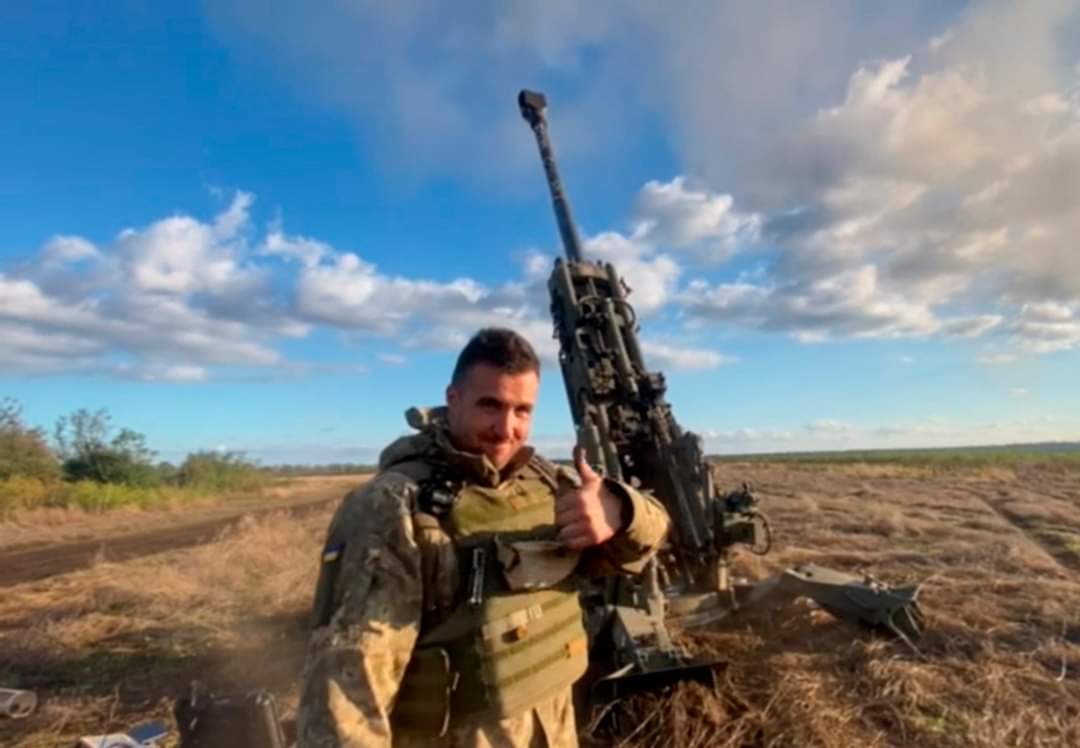
Use of civilians
This policy can free up countless officers and soldiers who can be used for purely combat and training posts. This action needs imagination, better HR processes and a wider value-for-money approach to the war. Using civilian skills was done successfully by both the US and U.K. in previous wars, even to the point where a US industrialist was made a lieutenant general, so he could change the way weapon procurement was managed.
Those who think this is foolish should ask themselves how supermarket chains and banks keep working at high rates in places like Kharkiv, and in many areas of the grey zone, and how quickly they got business back into Kherson. The ZSU needs to utilize many of the people who have this ability.
Command selection
The most important task for the commanders and staff at every level is to identify those officers and potential officers who can get battle results with few casualties. There needs to be a policy now to set up a process that identifies potential commanders for promotion, along with those who are not fit to command. The latter must be removed and replaced before they do more damage.
There is also a NATO standard in which staff appointments like Chief J7 (Training) are not commanders, but staff. Commanders should only do one job. They should either be appointed to command operations (and nothing else) or they should command the creation and training of units for operations. The reason they should not do both is that the requirements of each require 100 percent concentration – 24/7/365 – along with exhausting leadership. There is not sufficient time for success in duplicate roles. Arguably, the army commander must be full-time training troops or full-time creating units, but not both. Today, he appears to do both roles. At some point in this arrangement, there will be a weakness. We do not see the best performance from this situation.
Procurement
In both the U.K. and US, where industry was given a clear task to deliver a product like aircraft, vehicles, and ammunition, industry outperformed, many times. This area needs to be examined properly to identify what laws, rules, regulations, and practices can be changed to increase efficiency and effectiveness. It is suggested that procurement for war needs to be completely rethought, with a senior business leader put in charge and new, business-trained and experienced civil staff engaged.
Ukroboronprom has many top, technical people within some companies who do world-class research and development. But they are not geared for mass production. Ukroboronprom can best be focused on doing what it's already doing. It should not be involved in general business areas because the organization is not designed or staffed for delivering rapid business support in war time. It cannot move as quickly as new defense businesses or foreign businesses that would give more support if they were directly engaged and paid. Working through Ukroboronprom for weapons or ammunition is clearly not the most efficient or effective way to deliver requirements. More open and direct relationships with Ukrainian and international defense companies are required.
I hear comments about not having enough money to do things in Ukraine. During the American War of Independence, senior politicians were sent abroad as ambassadors to try to borrow money to fund the war and to make weapons. Ukraine needs to do the same. But money will only come when there are transparent business policies, plans on how it will be used, and investments are protected. This needs much more directed government activity than is currently happening. This work also needs an understanding of the need to appoint top diplomats to all supporting countries, such as the ambassadors to the US and Australia, and not the most recent dire and inappropriate selections.
Drones
But there is still a serious need for a deployment policy of these units that reflects combat reality. Drones are now a vital tool, but they have limitations. They need to be used effectively for killing targets and, more importantly, for assisting successful operations. When drones are commanded centrally and not under command brigades, it's possible this expensive resource is used on easy targets and not on targets that affect the strategic progress of the plan.
It remains indisputable that only infantry soldiers can take and hold ground – not drones. Drones are merely a commander’s tool in the process. Therefore, drone troops must always, always, always be under the command of brigade or battalion commanders and in support of their plans, not the reverse.
Drones are not all the same. Each level of command needs the appropriate level of drones for the tasks they have been set. This means clarity of drone capability and the numbers required at each level of combat to ensure the correct drones and numbers are purchased. The capability requirements are totally different at each command level. When drones are not suited for the tasks, they can be misused. The new organization of attack drones will do little to assist the company- and platoon-level requirements for local surveillance wedding drones.
When there is a shortage of wedding drones at the tactical level, there is a danger of using strategic drones to destroy low-level tactical targets. This is highly wasteful in both military and economic terms and bad long-term value for money. To cut down Ukrainian losses, a policy is needed to set up an “independent-from-MO" organization for the delivery of drones and to provide trained drone operators at all levels, not just for one type of organization.
This new organization is probably best allocated to an expanded Aerorozvidka, an NGO, which has the most comprehensive understanding of defense needs. At present, this multi-spectrum analysis of needs seems to be limited to experienced volunteers and NGOs. This is not best practice and reflects the failure of the defense system to understand the full value of drones.
Medical aid must be boosted to decrease
No sick or injured soldier should ever have to worry about the support he will receive on the battlefield, during transport to the hospital, in the hospital, or during recuperation. This support must also cover mental illness. However, Law 8271 dangerously risks turning those who are mentally ill into criminals, as happened in the First World War. A strong national policy for medical support is needed, all to be run by the Ministry of Health. Military medicine should be reduced to advise and action, not leadership. The national medical system should be totally focused on war support until the effects of the war are over.
Family and welfare officers
Their task is to be the formal point of contact between the unit, families, government, the ZSU, the local government, and the medical system. It is important to have an officer in each unit who is away from the battle space and who can process the necessary documents for families when a partner dies or is injured. The critical weeks after trauma are vital for the family in providing immediate welfare and financial aid, especially moral support. The officer would have this responsibility.
The team should be housed in the barracks or in a local government office if the barracks is unsafe. The officer is the unit commander's formal and legal representative at the home base. The team should represent and support the unit. Families and should be given legal authority to be given classified or sensitive information.
A logistics system to cut Ukrainian losses
The current logistics system is as far from NATO standards as possible. It needs steady reform based on coherent and “common-to-all-requirements” principles and policies. Logistics needs rethinking from first principles. The key area of supply should be simple and geographical, not as it is now with supplies crisscrossing the country back and forth. Maintenance and repair must be close to the battle area, not in Poland. Imagine that a brigade is a piece of equipment requiring electricity …
- Medical supply and evacuation.
- Unit combat supplies of food, fuel, ammunition, batteries, vehicle spares, and drones.
- Personal equipment of all types (registered on IT with no paper required)
- Reach-back ability for technical equipment to allow replacement and repair of phones, computers, and radios.
- Forward maintenance of all soft-skin and armoured vehicles, up to engine and barrel changes and minor body repair.
- Forward maintenance of technical equipment like weapon sights, drones, radios, etc.
The first goal to improve logistics should be to hire an experienced “defense systems engineer” to map out all the logistic processes and to seek and recommend efficiencies. Estonia has an experienced systems expert Jaan Murumets who works for MOD. Ask for him as part of Estonia's support. The second policy should be to decide on the best method of commanding and delivering geographical supply to brigades and battalions.
If a policy of designing mobile “close support” logistics for future foreign equipment and mobile battle is not produced for each brigade, there will be problems.
Conclusion
The country and the armed forces must not be slaves to the current defense system. This defense system has expanded rapidly to meet Russia. But this system has problems. Many policies, systems and organizations are not fit for this current war, if it continues for long. The current amazing fighting by the defense forces relies far more upon the character and courage of the Ukrainian people than it does upon good management and organization, or any lessons and skills gained through progressive and continuous training and operations.

